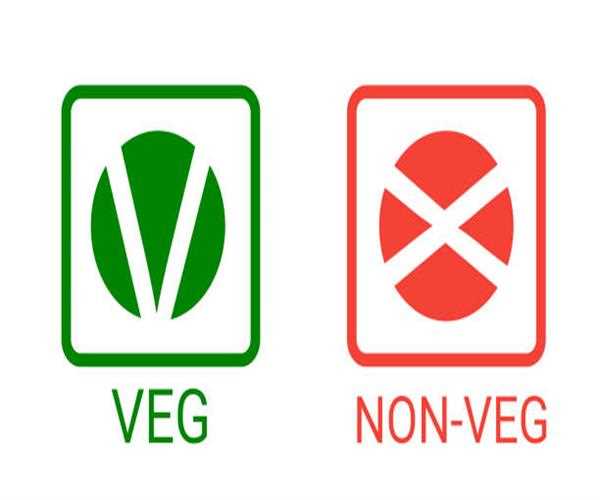
28-Jul-2023 , Updated on 7/29/2023 12:48:52 AM
Vegetarian vs Non-vegetarian foods- Explore the reasons
Highlights
Vegetarian Diet
- Excludes meat, fish, and poultry from the diet.
- Primarily relies on plant-based foods such as fruits, vegetables, grains, legumes, nuts, and seeds.
- May have lower intake of saturated fats and cholesterol.
- Typically higher in fiber, vitamins (e.g., C, E, folic acid), and minerals (e.g., magnesium, potassium).
Non-Vegetarian Diet
- Includes a wide range of animal-derived foods, such as meat, poultry, fish, and seafood.
- Generally higher in protein and essential nutrients like vitamin B12, iron, and omega-3 fatty acids (from fish).
- May be associated with higher intake of saturated fats and cholesterol.
- Linked to an increased risk of certain health issues, including heart disease, high blood pressure, and certain cancers.
The debate between vegetarian and non-vegetarian diets has been ongoing for centuries. People have strong beliefs and opinions on both sides, leading to a complex discussion about nutrition, ethics, and environmental impact. A vegetarian diet excludes meat and seafood, while a non-vegetarian diet includes animal-based foods.
In this view, we will explore the key differences between these two dietary choices, considering their nutritional aspects, health implications, ethical considerations, and environmental impact.
Nutritional Aspects
One of the primary concerns when comparing vegetarian and non-vegetarian diets is their nutritional composition. Both diets can provide essential nutrients, but they differ in the sources of these nutrients.
A. Protein- Non-vegetarian diets usually contain a higher amount of complete proteins since animal-based sources like meat, fish, and poultry provide all the essential amino acids. Vegetarian diets, however, can also fulfill protein requirements through plant-based sources such as legumes, tofu, tempeh, nuts, and seeds. Combining different plant-based protein sources can ensure a well-rounded amino acid profile.

B. Iron- Animal sources like red meat provide heme iron, which is more readily absorbed by the body compared to non-heme iron from plant sources like spinach and lentils. Vegetarians need to pay close attention to their iron intake and ensure they include Vitamin C-rich foods to enhance non-heme iron absorption.
C. Vitamin B12- Vitamin B12 is predominantly found in animal products, and it is a nutrient of concern for vegetarians. While some plant-based foods are fortified with B12, vegetarians may need to consider supplementation or fortified foods to meet their B12 needs adequately.
D. Omega-3 Fatty Acids- Non-vegetarian diets typically offer a direct source of long-chain omega-3 fatty acids (EPA and DHA) from fish. Vegetarians can obtain short-chain omega-3s (ALA) from sources like flaxseeds, chia seeds, and walnuts. However, converting ALA to EPA and DHA in the body is inefficient, so some vegetarians opt for algae-based supplements to meet their omega-3 fatty acids requirements.

E. Fiber- Vegetarian diets tend to be higher in dietary fiber due to the abundance of fruits, vegetables, whole grains, and legumes. Adequate fiber intake supports digestive health and reduces the risk of certain chronic diseases.
Health Implications
Both vegetarian and non-vegetarian diets have been associated with various health benefits and risks. It's essential to consider individual health conditions and dietary preferences when choosing a diet.
A. Vegetarian Diet- Studies have shown that well-planned vegetarian diets can lead to lower risks of heart disease, hypertension, type 2 diabetes, certain cancers, and obesity. They are often rich in antioxidants, vitamins, and minerals, which contribute to overall well-being. However, if not carefully planned, a vegetarian diet may lack certain nutrients like Vitamin B12, iron, and omega-3 fatty acids, which could lead to deficiencies.
B. Non-Vegetarian Diet- Non-vegetarian diets can provide a good source of complete proteins, iron, and B12. However, excessive consumption of red and processed meats has been linked to an increased risk of heart disease, stroke, certain cancers, and other health issues. The quality of the non-vegetarian diet largely depends on the types and amounts of animal products consumed.
Ethical Considerations
Ethical concerns play a significant role in the decision to adopt a vegetarian or non-vegetarian diet.
A. Vegetarian Diet- Many people choose a vegetarian diet for ethical reasons, particularly related to animal welfare. They object to the treatment of animals in factory farming and the environmental impact of livestock production. By avoiding meat consumption, they aim to reduce their contribution to animal suffering.
B. Non-Vegetarian Diet- Individuals who follow a non-vegetarian diet may not be morally opposed to eating meat and believe it's a natural part of the food chain. Some argue that sustainable and ethical practices in animal husbandry can mitigate the ethical concerns associated with meat consumption.
Environmental Impact
The environmental impact of our dietary choices has become a crucial factor in the vegetarian vs. non-vegetarian debate.
A. Vegetarian Diet- Research suggests that vegetarian diets generally have a lower carbon footprint and require less land, water, and energy compared to non-vegetarian diets. Livestock farming is a significant contributor to greenhouse gas emissions, deforestation, and water pollution. Embracing plant-based diets can help reduce environmental strain and promote sustainability.
B. Non-Vegetarian Diet- The environmental impact of a non-vegetarian diet largely depends on the production methods and sources of meat. Industrial livestock farming can lead to environmental degradation and contribute to climate change. However, some argue that sustainable and regenerative farming practices can mitigate these negative effects.
In conclusion, the choice between a vegetarian and non-vegetarian diet is a complex and personal decision influenced by nutritional, health, ethical, and environmental factors. Both diets can be healthy and nutritionally adequate when well-planned. A balanced and diverse diet, regardless of whether it includes animal products or not, is essential for optimal health.
Individuals should consider their own health needs, ethical beliefs, and environmental concerns when making dietary choices. It's crucial to seek guidance from healthcare professionals and nutritionists to ensure that dietary requirements are met, regardless of the chosen path.
Ultimately, fostering understanding and respect for different dietary choices can lead to a more inclusive and sustainable food culture.

SEO and Content Writer
I am Drishan vig. I used to write blogs, articles, and stories in a way that entices the audience. I assure you that consistency, style, and tone must be met while writing the content. Working with the clients like bfc, varthana, ITC hotels, indusind, mumpa, mollydolly etc. has made me realized that writing content is not enough but doing seo is the first thing for it.
Join Our Newsletter
Subscribe to our newsletter to receive emails about new views posts, releases and updates.
Copyright 2010 - 2026 MindStick Software Pvt. Ltd. All Rights Reserved Privacy Policy | Terms & Conditions | Cookie Policy